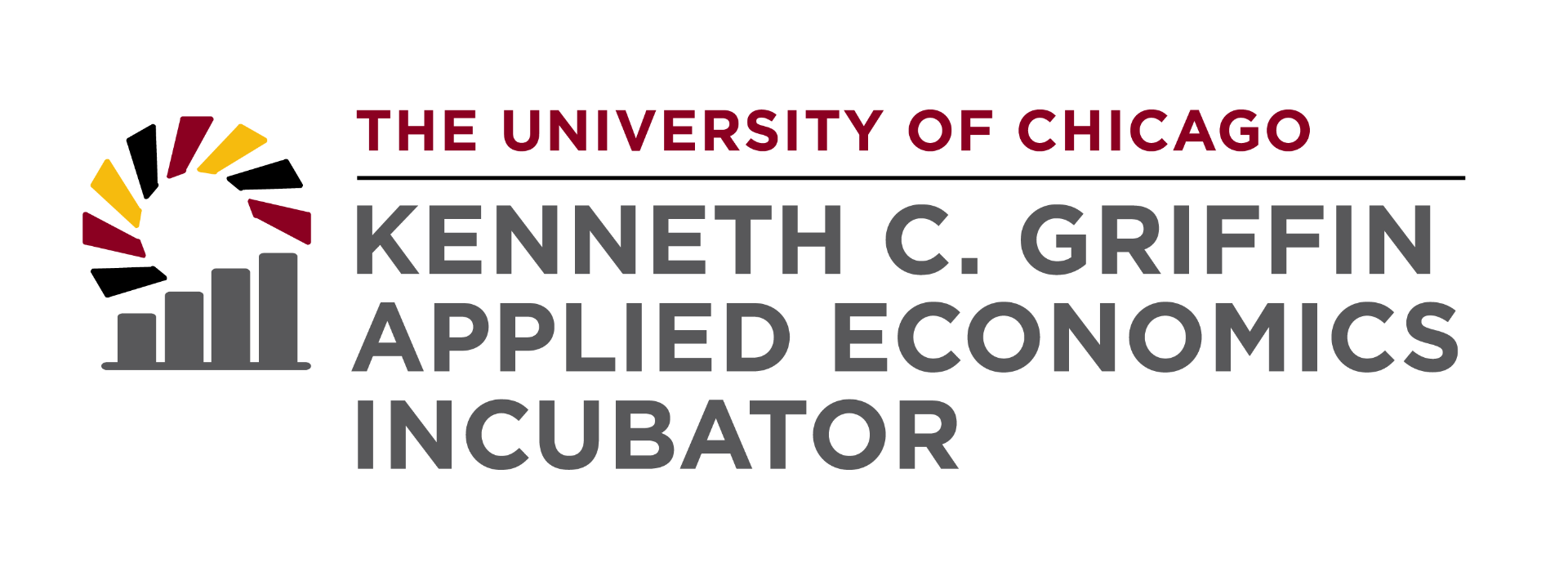2021-2022 Incubator
The Data Revolution: New Econometric Tools for the Big Data Era
The Data Revolution
This year’s Griffin Applied Economics Incubator explores the potential implications of using machine learning and big data to understand economic questions.
For years, firms have achieved incredible successes in harnessing the power of bigger and better datasets using novel techniques from machine learning, computer science, and statistics. This revolution has helped make substantial progress on long-standing problems, such as speech and image recognition.
Although many questions in economics are fundamentally distinct from these applications, they could conceivably benefit from the big data and machine learning revolution. Examples include assessing causal effects of policy interventions, modeling new types of economic data such as text or networks, and targeting interventions to specific groups or markets.
Can off-the-shelf methods be used to answer such economic questions, or do they need to be modified in fundamental ways? And what type of theoretical guarantees do these methods possess? More broadly, can the knowledge from disciplines outside of economics be used to exploit the power of big data, and be successfully applied to areas of economic research?
The Incubator will bring together an interdisciplinary team of researchers and thought leaders to unravel some of the methodological and substantive questions which arise in the age of big data.

2021-2022 Advisory Board
Stéphane Bonhomme
The Ann L. and Lawrence B. Buttenwieser Professor in Economics and the College (at Chicago since 2013); Fellow of the Econometric Society (2017).
Azeem Shaikh
Ralph and Mary Otis Isham Professor in Economics and the College and Thornber Research Fellow (at Chicago since 2007); Fellow of The Econometric Society (2018); Editor, Journal of Political Economy. [Leave of Absence Winter 2022]
James Evans
Professor; Director, Knowledge Lab; Faculty Director, Masters Program in Computational Social Science; External Professor, Santa Fe Institute
Chris Hansen
Wallace W. Booth Professor of Econometrics and Statistics
Mike Franklin
Liew Family Chairman of Computer Science, Senior Advisor to the Provost for Computing and Data Science
Rina Foygel Barber
Louis Block Professor; Department of Statistics and the College; Member: Committee on Computational and Applied Mathematics (CCAM)
Research Grants 2021-2023 – “The Data Revolution”
To begin a wider campus discussion, a Request for Proposals (RFP) was sent out to all faculty in the College to help begin answering some questions posed by the Incubator. The funding was awarded to the following faculty for projects:
- Guillaume A. Pouliot (Co-Investigator: Samuel Higbee, Ph.D. Student, Kenneth C. Griffin Department of Economics) for “Optimal Transport as a Regression Tool”
- Raul Castro Fernandez for “Discovering Alternative Data for Economic Research”
- Eyal Frank (Co-Investigators: Anouch Missirian, Toulouse School of Economics; Sushant Banjara, Ph.D. Student in the Harris School of Public Policy) for “Land-Use Restrictions and Perverse Incentives: Using Machine Learning to Evaluate the Endangered Species Act from High-Frequency Satellite Data”
- Peter Ganong (Co-Investigators: Jonathan Gruber, MIT; Pascal Noel, Booth School of Business) for “Experimental Estimates of Willingness to Pay for Unemployment Insurance”
- Jeffrey Grogger (Tom Kirchmaier, Centre for Economic Performance) for “Arrest, Risk Assessment, and Domestic-Abuse Recidivism”
In addition to this RFP aimed at faculty, the Incubator Organizers wanted to put out a call for an undergraduate student challenge. The Causality Challenge was intended to discover and develop talent from the UChicago undergraduate pool in applying econometrics and machine learning for prediction and causal inference. The top three winners received funding toward a Research Assistant position with a faculty member working in a related field at the University of Chicago during the summer of 2022.
The three winners were:
- Isha Sharma, matched with Professor Alex Torgovitsky (Economics)
- Tony Zong, matched with Professor Molly Offer-Westort (Political Science)
- Ziz Zhou, matched with Professor Christopher Taylor (English)
Machine Learning Across Disciplines: New Theoretical Developments
To gather the best minds working on Big Data, the Incubator hosted a large convening on June 23, 2022: Machine Learning Across Disciplines: New Theoretical Developments. We were excited to be back in-person after two years of remote work and difficulty traveling, and we were especially thrilled to host an event at the new David Rubenstein Forum.
Event Concept
Machine learning methods have revolutionized modern data analysis. This conference brought together researchers from different disciplines – statistics, computer science, and econometrics – to discuss recent advances in our understanding of the theory underlying these methods, emphasizing theoretical guarantees on their performance. A primary goal of the conference was to foster interactions across researchers in different areas, thereby deepening our understanding of current methods and providing conceptual tools for the development of new ones.
The following speakers discussed new work in their respective fields of expertise:
Adel Javanmard, University of Southern California
Stefan Wager, Stanford University
Misha Belkin, University of California San Diego
Denis Chetverikov, UCLA
Whitney Newey, MIT
Jianqing Fan, Princeton University
Huibin (Harry) Zhou, Yale University
Robert Nowak, University of Wisconsin
Vasilis Syrgkanis, Microsoft
Tengyu Ma, Stanford University
